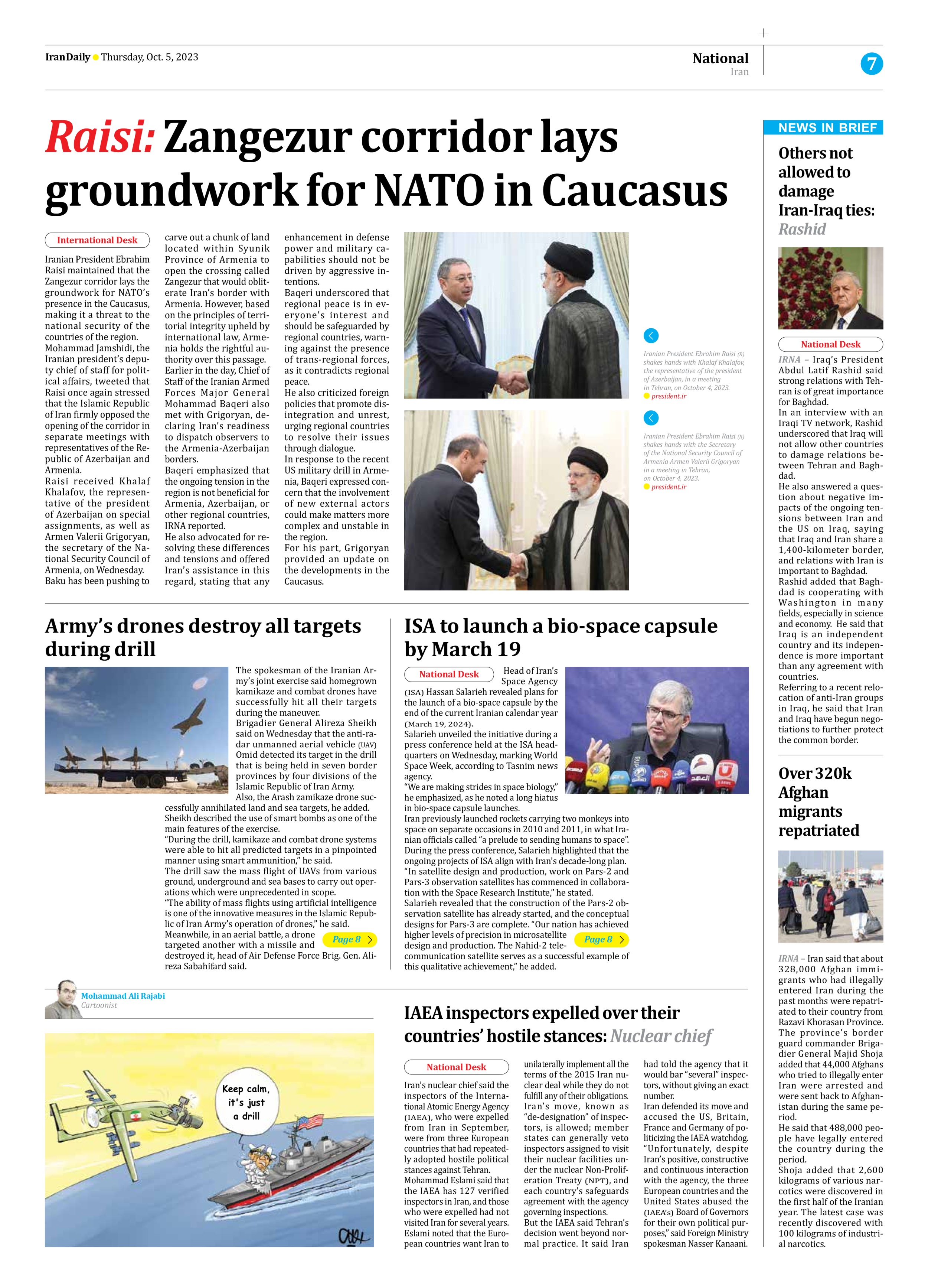
Raisi: Zangezur corridor lays groundwork for NATO in Caucasus
Iranian President Ebrahim Raisi maintained that the Zangezur corridor lays the groundwork for NATO’s presence in the Caucasus, making it a threat to the national security of the countries of the region.
Mohammad Jamshidi, the Iranian president’s deputy chief of staff for political affairs, tweeted that Raisi once again stressed that the Islamic Republic of Iran firmly opposed the opening of the corridor in separate meetings with representatives of the Republic of Azerbaijan and Armenia.
Raisi received Khalaf Khalafov, the representative of the president of Azerbaijan on special assignments, as well as Armen Valerii Grigoryan, the secretary of the National Security Council of Armenia, on Wednesday.
Baku has been pushing to carve out a chunk of land located within Syunik Province of Armenia to open the crossing called Zangezur that would obliterate Iran’s border with Armenia. However, based on the principles of territorial integrity upheld by international law, Armenia holds the rightful authority over this passage.
Earlier in the day, Chief of Staff of the Iranian Armed Forces Major General Mohammad Baqeri also met with Grigoryan, declaring Iran’s readiness to dispatch observers to the Armenia-Azerbaijan borders.
Baqeri emphasized that the ongoing tension in the region is not beneficial for Armenia, Azerbaijan, or other regional countries, IRNA reported.
He also advocated for resolving these differences and tensions and offered Iran’s assistance in this regard, stating that any enhancement in defense power and military capabilities should not be driven by aggressive intentions.
Baqeri underscored that regional peace is in everyone’s interest and should be safeguarded by regional countries, warning against the presence of trans-regional forces, as it contradicts regional peace.
He also criticized foreign policies that promote disintegration and unrest, urging regional countries to resolve their issues through dialogue.
In response to the recent US military drill in Armenia, Baqeri expressed concern that the involvement of new external actors could make matters more complex and unstable in the region.
For his part, Grigoryan provided an update on the developments in the Caucasus.







